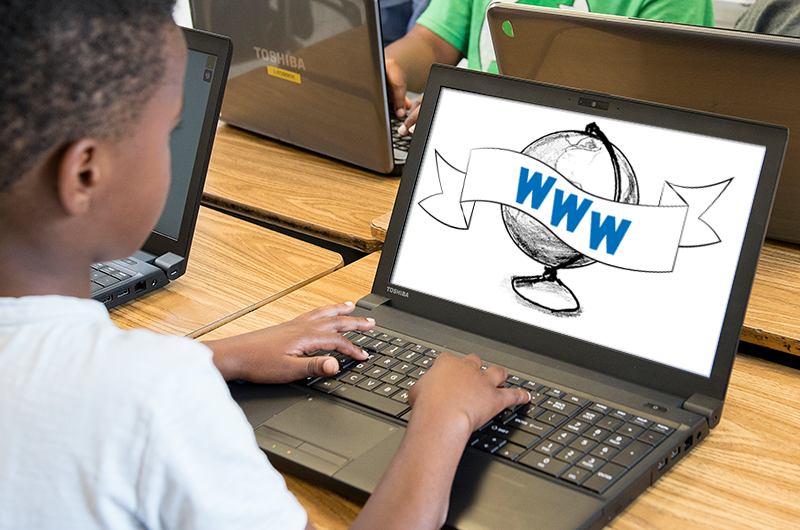What World Wide Web Day Means for Students


On August 1 of every year, we celebrate the creation of the World Wide Web (you know, the internet, the net, the web, the interwebz, Google’s home) and how it allows us to share a plethora of information with one another in mere seconds.
The nearly 30-year-old digital service was created by computer scientist Tim Berners Lee to assist students studying science at The European Organization for Nuclear Research (CERN) share data.
Though his proposal was rejected by his professor the first time he presented it, Lee never gave up. By 1991, the three most important components of his World Wide Web project had been developed and were in use, including: Hypertext Markup Language (HTML), Uniform Resource Locator (URL) and Hypertext Transfer Protocol (HTTP).
Today, over four billion people from all over the world use the World Wide Web to share and acquire new information and look at cat videos. The World Wide Web has made the internet a source of knowledge not only for college students, but for learners of all ages and informational intents. Websites of all kinds are available for exploration for anyone who so desires.
The web is a great learning tool for Pre-K and elementary school students in need of resources that will shed a greater light on foundational concepts being taught in the classroom. Education is becoming increasingly digitized and the internet is a regular part of the learning process. Students will be asked to complete many assignments and tests using a web-enabled device in their earliest years of school.
It is imperative that students are equipped with the tools they need to fully engage in lessons. That is why Learning Without Tears has created the Keyboarding Without Tears curriculum. Keyboarding Without Tears uses developmentally appropriate and engaging lessons to teach students how to type with ease and develop overall computer navigation skills. Lesson are cross-curricular and reinforce concepts from other subjects such as math and history.
The World Wide Web is a great aid in the learning process, but using it comes with responsibility. The Keyboarding Without Tears curriculum also includes lessons on Digital Citizenship which teaches students how to conduct themselves online and remain safe while surfing the web.
Try Keyboarding Without Tears for free to see how it can prepare your students for computer integrated learning! Happy World Wide Web Day!
Sources: https://webfoundation.org/about/vision/history-of-the-web/ https://www.internetworldstats.com/stats.htm


